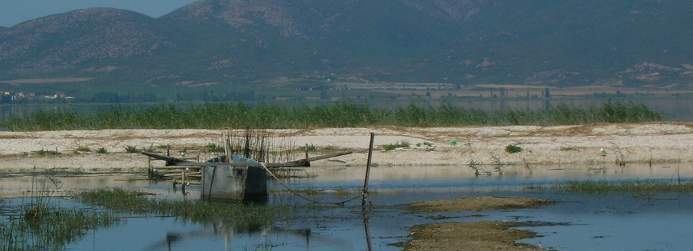If you are interested in accessing articles related to a specific GWP region, please select a region from the left hand side of the page.

Archive
This is the full archive of news articles and reports on GWP activities around the world.

This is the full archive of news articles and reports on GWP activities around the world.
If you are interested in accessing articles related to a specific GWP region, please select a region from the left hand side of the page.
 The global focus on the threats posed by climate change has drawn attention to the fact that water will be the medium through which many of its impacts will be felt. In addition to the direct impacts of damaging floods and interruptions to water supply due to drought, a particular concern in many regions is the threat to food security, driven by changing rainfall patterns and increased aridity.
The global focus on the threats posed by climate change has drawn attention to the fact that water will be the medium through which many of its impacts will be felt. In addition to the direct impacts of damaging floods and interruptions to water supply due to drought, a particular concern in many regions is the threat to food security, driven by changing rainfall patterns and increased aridity.
Developed by the Southern African Development Community (SADC), a climate change adaptation strategy for the water sector was officially launched at COP 17 in December 2011 in Durban, South Africa. It effectively sees SADC take up the challenge of responding to the threat of climate change in southern Africa.
Recently, Chile's General Directorate of Water (DGA) has showed a keen interest in ensuring an integrated approach to water management, reflected in its 2005 document IWRM and Several Experiences of Organisations of Water Users and the most recent 2011 report: Chile – Diagnosis of Water Resources Management.
Continuing a process launched in 2006, GWP Mediterranean organised four regional workshops during 2011 aimed at enriching knowledge, enhancing experience-sharing and strengthening capacity building on issues relating to transboundary water resources management in south-eastern Europe.
GWP Central Asia and Caucasus (CACENA) has received a grant from USAID to coordinate a consortium developing a regional economic model for the integrated use of water resources in the Aral Sea basin.
GWP Benin was established a little over ten years ago. In recent years, it has been credited with helping to steer the new Water Law through parliament (2010), promote acceptance of the Water Policy (2009), and campaign for the national IWRM Plan among the country's water stakeholders (2011).
The GWP Technical Committee consists of up to 12 internationally recognised professionals selected for their experience in different disciplines relating to integrated water resources management. The Committee Chair is Dr Mohamed Ait-Kadi of Morocco.
The National IWRM Plan for Panama was approved in November 2011. This is the culmination of a long process, under the National Environment Authority (ANAM), supported by GWP Panama. The Plan aims to improve the welfare of communities in the basins, without compromising the sustainability of their natural or cultural systems. The Plan will benefit 3.4 million people and contribute to the operation of the Panama Canal, which in 2011 contributed US$1.043 million to the country's economy.
The Gambia officially launched a new Country Water Partnership (CWP) in 2011, joining the other 12 West African CWPs that have been formed since the beginning of GWP's activities in West Africa. Now, all countries in the region except Liberia and Sierra Leone have set up a CWP.
While pollution problems have long been acknowledged in the Okavango Delta, it was the Botswana IWRM-WE Plan project (facilitated by GWP Botswana, led by Botswana's Department of Water Affairs, and funded by UNDP GEF) which brought stakeholders and institutions together to act on the issue. This contrasted with the isolated, ad hoc project and departmental actions that had gone before.